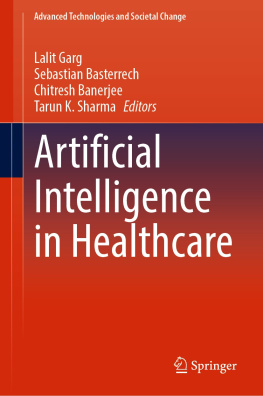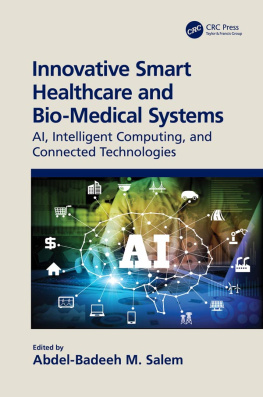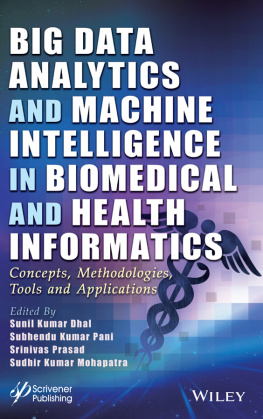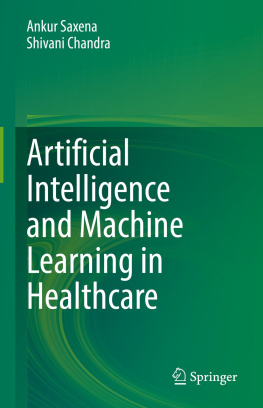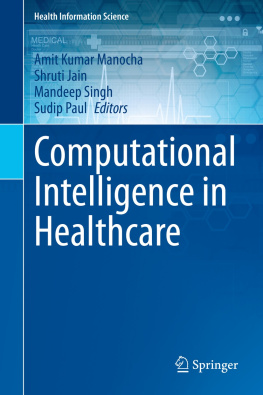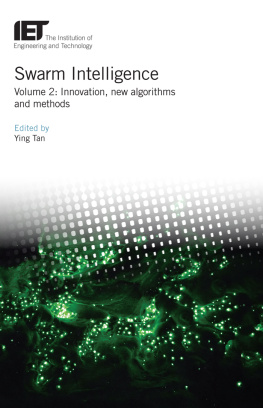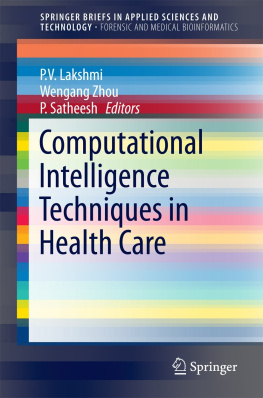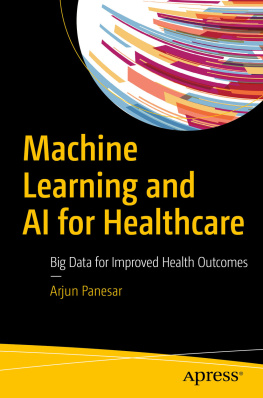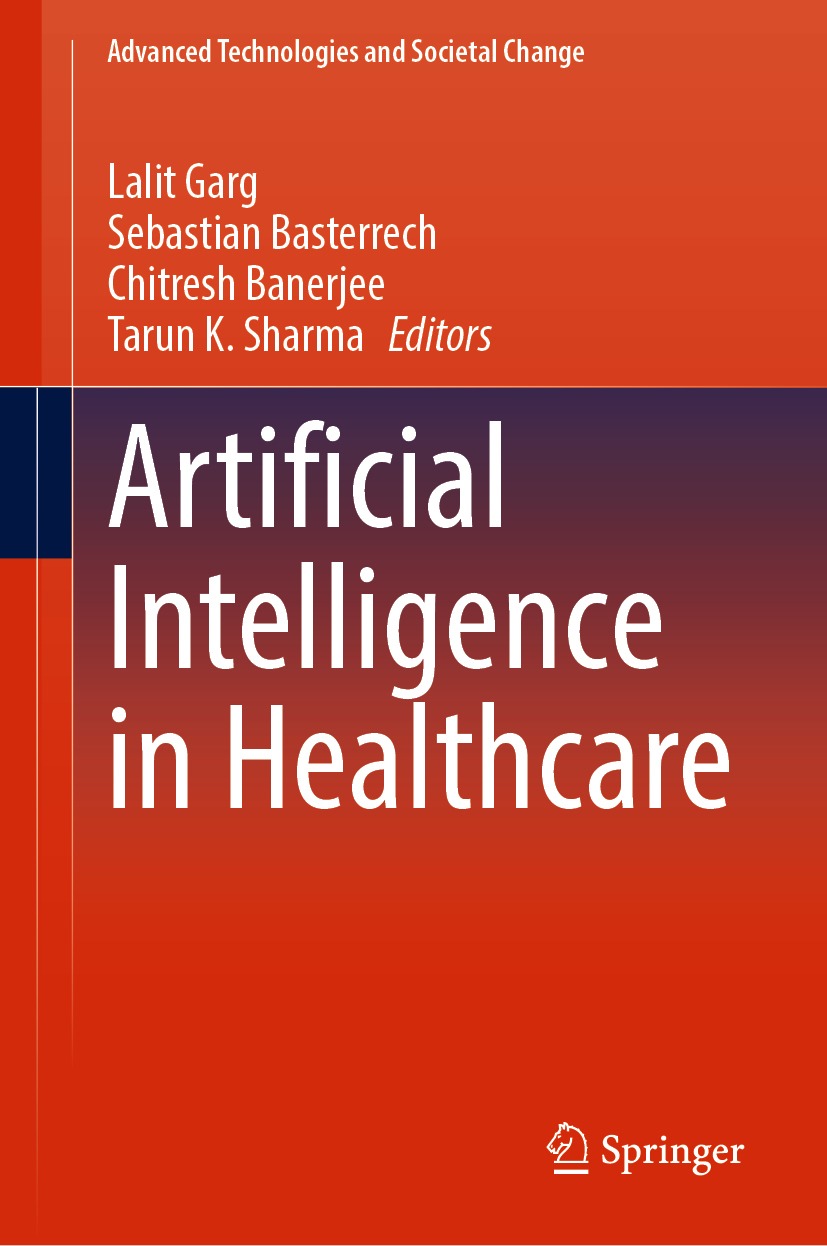Advanced Technologies and Societal Change
Series Editors
Amit Kumar
Bioaxis DNA Research Centre (P) Ltd, Hyderabad, Telangana, India
Ponnuthurai Nagaratnam Suganthan
School of EEE, Nanyang Technological University, Singapore, Singapore
This series covers monographs, both authored and edited, conference proceedings and novel engineering literature related to technology enabled solutions in the area of Humanitarian and Philanthropic empowerment. The series includes sustainable humanitarian research outcomes, engineering innovations, material related to sustainable and lasting impact on health related challenges, technology enabled solutions to fight disasters, improve quality of life and underserved community solutions broadly. Impactful solutions fit to be scaled, research socially fit to be adopted and focused communities with rehabilitation related technological outcomes get a place in this series. The series also publishes proceedings from reputed engineering and technology conferences related to solar, water, electricity, green energy, social technological implications and agricultural solutions apart from humanitarian technology and human centric community based solutions.
Major areas of submission/contribution into this series include, but not limited to: Humanitarian solutions enabled by green technologies, medical technology, photonics technology, artificial intelligence and machine learning approaches, IOT based solutions, smart manufacturing solutions, smart industrial electronics, smart hospitals, robotics enabled engineering solutions, spectroscopy based solutions and sensor technology, smart villages, smart agriculture, any other technology fulfilling Humanitarian cause and low cost solutions to improve quality of life.
More information about this series at http://www.springer.com/series/10038
Editors
Lalit Garg , Sebastian Basterrech , Chitresh Banerjee and Tarun K. Sharma
Artificial Intelligence in Healthcare
1st ed. 2022

Logo of the publisher
Editors
Lalit Garg
Information and Communication Technology, University of Malta, Msida, Malta
Sebastian Basterrech
Faculty of Electrical Engineering and Computer Science, VSB-Technical University of Ostrava, Ostrava, Czech Republic
Chitresh Banerjee
Amity Institute of Information Technology, Amity University Rajasthan, Jaipur, Rajasthan, India
Tarun K. Sharma
Department of Computer Science, Shobhit University Gangoh, Gangoh, India
ISSN 2191-6853 e-ISSN 2191-6861
Advanced Technologies and Societal Change
ISBN 978-981-16-6264-5 e-ISBN 978-981-16-6265-2
https://doi.org/10.1007/978-981-16-6265-2
The Editor(s) (if applicable) and The Author(s), under exclusive license to Springer Nature Singapore Pte Ltd. 2022
This work is subject to copyright. All rights are solely and exclusively licensed by the Publisher, whether the whole or part of the material is concerned, specifically the rights of translation, reprinting, reuse of illustrations, recitation, broadcasting, reproduction on microfilms or in any other physical way, and transmission or information storage and retrieval, electronic adaptation, computer software, or by similar or dissimilar methodology now known or hereafter developed.
The use of general descriptive names, registered names, trademarks, service marks, etc. in this publication does not imply, even in the absence of a specific statement, that such names are exempt from the relevant protective laws and regulations and therefore free for general use.
The publisher, the authors and the editors are safe to assume that the advice and information in this book are believed to be true and accurate at the date of publication. Neither the publisher nor the authors or the editors give a warranty, expressed or implied, with respect to the material contained herein or for any errors or omissions that may have been made. The publisher remains neutral with regard to jurisdictional claims in published maps and institutional affiliations.
This Springer imprint is published by the registered company Springer Nature Singapore Pte Ltd.
The registered company address is: 152 Beach Road, #21-01/04 Gateway East, Singapore 189721, Singapore
Preface
This book highlights the analytics and optimization issues in healthcare systems, proposes new approaches, and presents applications of innovative approaches in real facilities. In the past few decades, there has been an exponential rise in the application of artificial intelligence for solving complex and intricate problems arising in healthcare. The versatility of these techniques has made them a favorite among scientists and researchers working in diverse areas.
The present book includes only nine chapters having the applications of intelligent algorithms in healthcare.
The first chapter by Malhan et al. addressed the current challenging problem of COVID-19. This chapter focuses on collecting unstructured data from Twitter, present in tweets and extract opinions including sentiments of people from all over the world, and applying a machine learning model to test the validity of Sentiments. In addition to the Sentiment Analysis, this research also provides the Geo-spatial analysis using Python, demonstrating the countries from where the outbreak and lockdown affected lives as well as the rising number of responses to the pandemic that were expressed country-wise via Twitter. In the chapter , Bhardwaj and Mittal delivered in-depth details about the applications of deep learning and swarm intelligence algorithms for image-based cancer recognition and diagnosis.
The book is edited to serve a broad readership, including computer scientists, medical professionals, and mathematicians interested in studying tools and techniques for computational intelligence and applications in healthcare. It will also be helpful for researchers, graduate, and undergraduate students with an interest in the fields of Artificial Intelligence and Healthcare.
Lalit Garg
Sebastian Basterrech
Chitresh Banerjee
Tarun K. Sharma
Msida, Malta Ostrava, Czech Republic Jaipur, India Gangoh, India
Contents
Yash Malhan , Saket Saxena , Shuchi Mala and Achyut Shankar
Arpita Rajpoot , Garima Saluja , Nitima Malsa and Vimal Gupta
R. Angeline , S. Nithish Kanna , Niharika G. Menon and B. Ashwath
Ayushi Kirar , Siddharth Bhalerao , Om Prakash Verma and Irshad Ahmad Ansari
Deepak Panwar , G. L. Saini and Pankaj Agarwal
Arun Balodi , Neha Mangla , Archana Hombalimath and H. T. Manjula
R. S. M. Lakshmi Patibandla , V. Sesha Srinivas , B. Tarakeswara Rao and M. Ramakrishna Murthy
Reshu Agarwal
Tushar Bhardwaj , Rahul Mittal , Himanshu Upadhyay and Leonel Lagos
About the Editors
Dr. Lalit Garg
is an Information Technology innovator, academician, learner, teacher, developer, keynote speaker, consultant, and researcher with a demonstrated history of working in the higher education industry and an excellent research publication record. He is skilled in solving complex problems using machine learning, and data analytics, especially from the medicine and healthcare domain. Presently, he is a Senior Lecturer in Computer Information Systems at the University of Malta, Msida, Malta. He has published over 90 technical papers in refereed high-impact journals, conferences, and books. His research interest includes Modeling and simulation, Information systems, Operational research and forecasting, Health and social care modeling and missing data analysis, Biomedical computing, Neuroimaging, Metabolomics and personalized medicine, Knowledge discovery and data mining, E-learning, humancomputer interaction, cloud computing, and pervasive computing.

